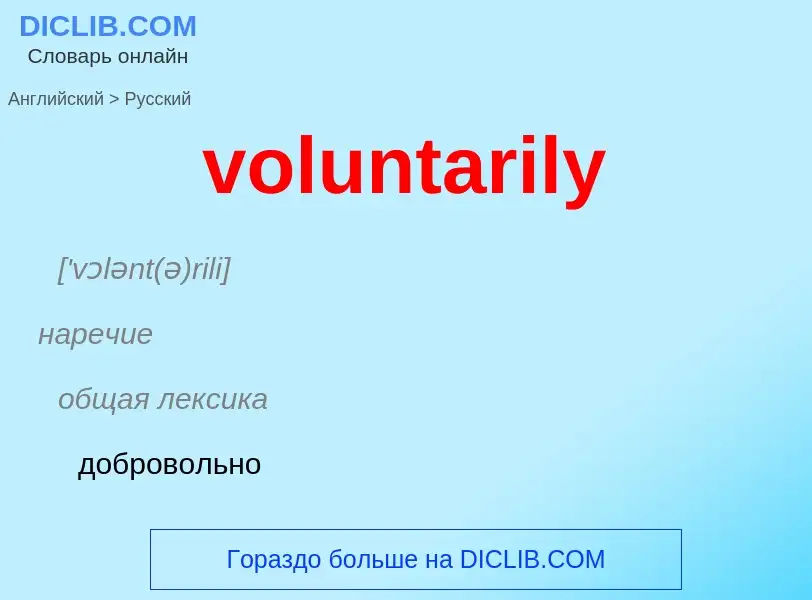Перевод и анализ слов искусственным интеллектом ChatGPT
На этой странице Вы можете получить подробный анализ слова или словосочетания, произведенный с помощью лучшей на сегодняшний день технологии искусственного интеллекта:
- как употребляется слово
- частота употребления
- используется оно чаще в устной или письменной речи
- варианты перевода слова
- примеры употребления (несколько фраз с переводом)
- этимология
voluntarily - перевод на русский
['vɔlənt(ə)rili]
наречие
общая лексика
добровольно
по своему (собственному) желанию или выбору
умышленно
сознательно
преднамеренно
нарочито
нарочно
с умыслом
произвольно
редкое выражение
естественно
стихийно
спонтанно
[,dʌblju(:),ɑ:,vi:'es]
сокращение
от Women's Royal Voluntary Service
Википедия
Voluntary childlessness, also called being childfree, describes the voluntary choice not to have children.
In most societies and for most of human history, choosing not to have children was both difficult and undesirable. The availability of reliable contraception along with support provided in old age by one's government rather than one's family has made childlessness an option for some people, though they may be looked down upon in certain communities.
According to the Merriam-Webster Dictionary, the word "childfree" first appeared sometime before 1901, and was described as a 'trend' in 2014 in Psychology Today online magazine. The meaning of the term "childfree" extends to encompass the children of others (in addition to one's own children) and this distinguishes it further from the more usual term "childless", which is traditionally used to express the idea of having no children, whether by choice or by circumstance. The term "child free" has been cited in Australian literature to refer to parents who are without children at the current time. This may be due to them living elsewhere on a permanent basis or a short-term solution such as childcare.

![Woman jogging with a dog at [[Carcavelos]] beach, Portugal. Some people prefer pets to children. Woman jogging with a dog at [[Carcavelos]] beach, Portugal. Some people prefer pets to children.](https://commons.wikimedia.org/wiki/Special:FilePath/Jogging with dog at Carcavelos Beach.jpg?width=200)








